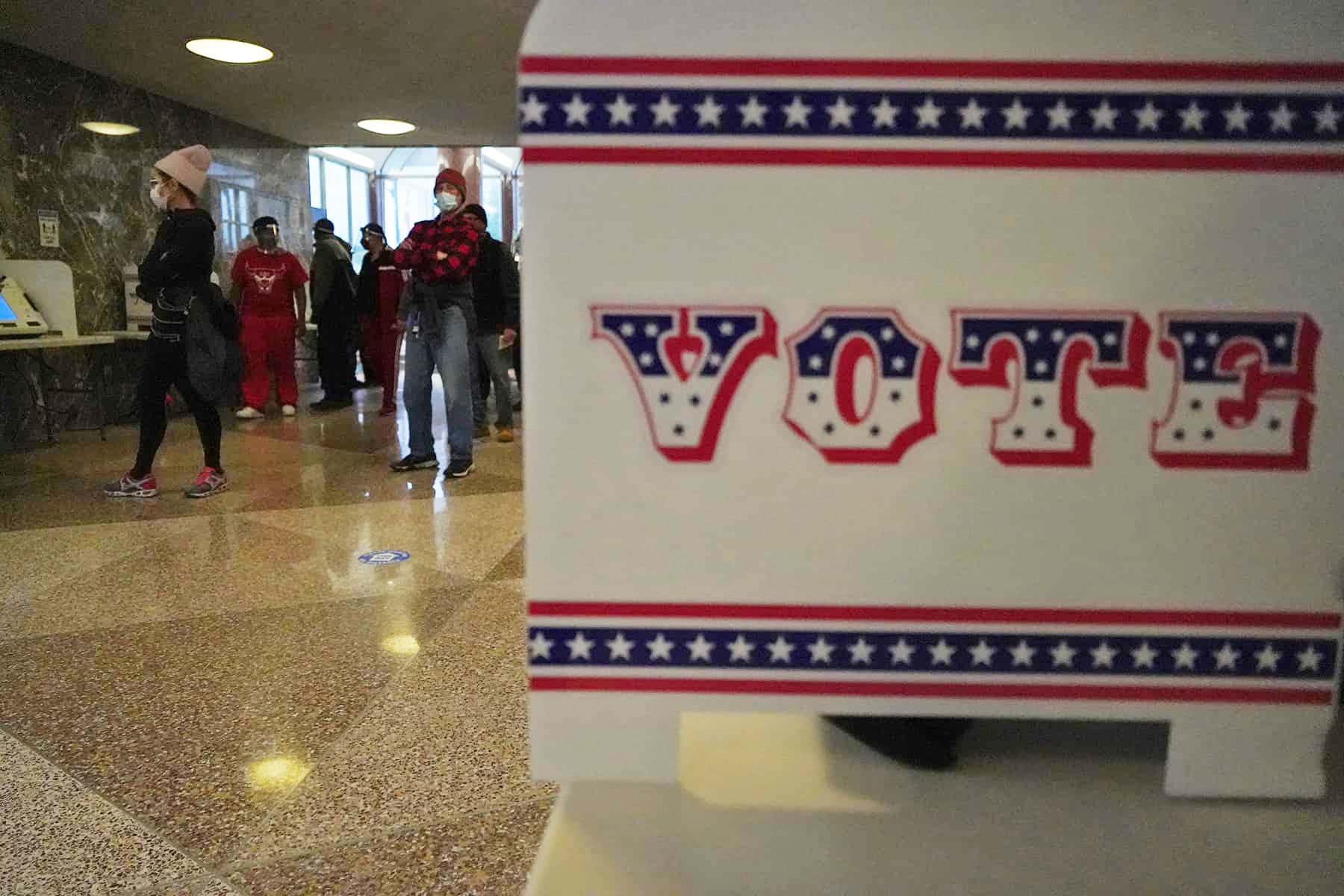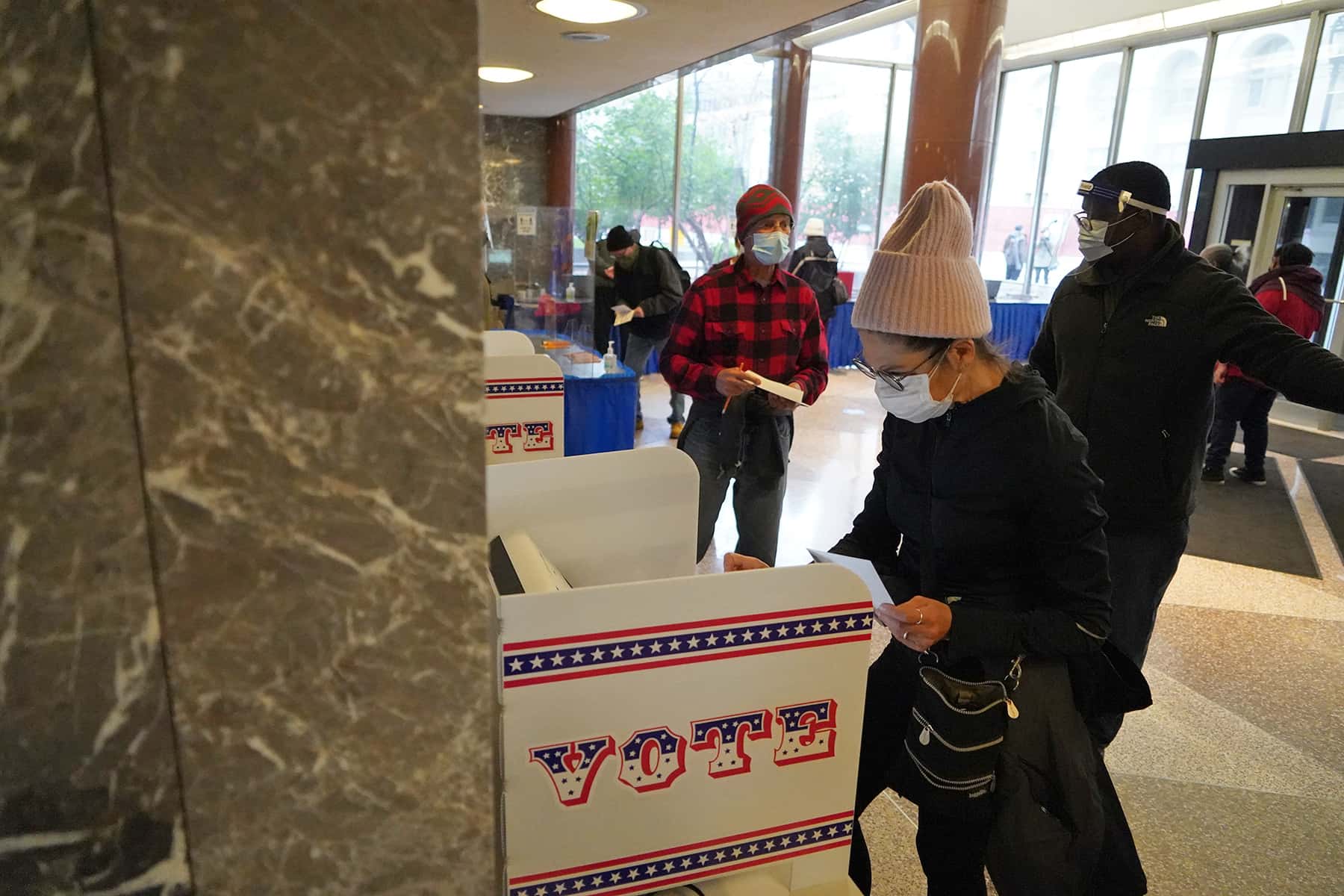
In a victory for the rights of state voters, the Supreme Court of Wisconsin on April 9 ruled in a 5-2 decision that a purge of the state’s voter rolls could not proceed.
The ruling prevents hundreds of thousands of Wisconsin voters from being removed. Writing for the majority, Justice Brian Hagedorn explained that the relevant purge statute “does not apply to the [Wisconsin Elections] Commission; there is no credible argument that it does.”
Notably, the Court rejected the argument that the Commission’s previous removal of voters in the 2017-2018 period showed it had the power to remove voters under Wisconsin law:
“[T]he remedy for alleged executive overreach is not a court order to continue acting unlawfully. Simply because an agency took action in the past does not mean its actions were legal, nor would it provide authority for this court to mandate agency action that the law itself does not sanction.”
“We are pleased to see that Wisconsin’s highest court has shut down this attempt to unlawfully purge voters from the rolls, finding that the relevant statute is directed at municipal clerks, not the Commission,” said Fair Elections Center Litigation Director and Senior Counsel Jon Sherman, which filed an amicus brief on behalf of League of Women Voters of Wisconsin. “This address change data was so unreliable though that it could not have been lawfully used to remove voters anyway and, should any future case seek to use ERIC data for that purpose on a local level, we will be there to defend registered voters’ rights.”
The decision permanently blocks the Wisconsin Elections Commission from removing voters flagged in the 2019 ERIC list from the state’s voter rolls.
“Voting rights are under attack. We are so pleased the Supreme Court has ensured that no legitimately registered voter will unnecessarily be made to register in order to exercise their right to vote,” said Debra Cronmiller, Executive Director of League of Women Voters of Wisconsin.
Doug Poland, a partner at Stafford Rosenbaum LLP in Madison, Wisconsin, and co-counsel for the League, noted that “the purge of voters in Wisconsin, had it gone forward, would have disproportionately disenfranchised voters in communities of color” based on a study published in February 2021.
That study, by researchers at Yale University, the University of Pennsylvania, Harvard University, and the Wharton School of Business, found that the rate at which the ERIC data erroneously flagged minority registrants as having moved was more than double the error rate for White registrants. Poland noted that a voter purge would have exacerbated existing restrictions on voting that already make it more difficult for voters in Wisconsin’s communities of color to exercise their right to vote.
League of Women Voters of Wisconsin, along with its attorneys at Fair Elections Center and Stafford Rosenbaum LLP, have opposed this threatened purge in the courts for about a year and a half. In November 2019, the League of Women Voters of Wisconsin moved to intervene in the state court litigation filed by the Wisconsin Institute for Law and Liberty (WILL).
It was alleged that Wisconsin law required the Wisconsin Elections Commission to use information provided by the Electronic Registration Information Center (ERIC) to flag voters who may have moved and to deactivate their registrations within 30 days if recipients failed to respond. Notably, the law under which WILL sued only permits cancellation of voter registration if there is “reliable information” of a residential address change.
The League was denied intervention in this case and ultimately filed an amicus brief with the Supreme Court of Wisconsin, arguing that the ERIC data was unreliable and, therefore, Wisconsin law does not permit its use to cancel voters. The state lawsuit sought to purge more than 234,039 registered Wisconsin voters within 30 days of the ERIC letters’ mailing. To date, Wisconsin government data reflect a seven percent error rate in the ERIC data, meaning that seven percent of the voters flagged had not, in fact, moved.
Because the notices provided to voters in October 2019 did not inform them that they would be removed from the rolls if they did not act, the League also filed a federal lawsuit, arguing that removal absent adequate notice would violate the Constitution’s guarantee of due process.
The suit also argued that the letter failed to provide voters with any deadline for responding and actually led voters who had not moved to believe that they could avoid removal by confirming their registrations by voting in the “next election.” When the Wisconsin Court of Appeals halted the purge ordered by the trial court in Ozaukee County, the parallel federal case was dismissed as unripe.
© Photo
Lee Matz















